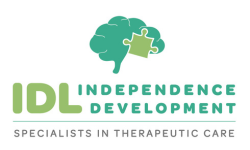
We advocate on the behalf of society’s most vulnerable.
We are firm believers that every child and young person has the right to experience happiness, and for this reason we work with the most challenging cases, producing positive outcomes. Many who come to us are seeking long-lasting positive change and real therapuetic help that will benefit their mental health and overall well-being. Every child and young person we care for will have full access to our team of therapeutic practitioners. their life to their fullest potential. Below are the key theories which influence our therapeutic service.
Attachment Theory
Attachment theory focuses on the idea of creating a safe environment, which then becomes a secure base for the young person to explore the world around them. Our facilities have been designed to ensure our children & young people feel safe, secure, and comfortable in our homes.
Containment Theory
Containment Theory dictates that the “container” – usually a key person in the young person’s life (in this context IDL practitioners), are able to acknowledge and accept a young person’s distress and makes experiences safe for them.
CBT
Cognitive Behaviour Therapy is used to explore the relationship between the thoughts, feelings and behaviours of our children & young people, to make them more aware of their triggers & actions. CBT can result in lower levels of anxiety, “happier” outlook on life and increased self control.
Reflective Practice
It is important that practitioners maintain a fluid and up to date flow of information regarding each child or young person in our care between practitioners and other relevant stakeholders. We do this through regular team meetings focused on our children and young people.
Psychodynamic Principles
Psychodynamic Principles focuses on the intentions and motives of a young person rather than behaviour and actions alone. Using psychoanalysis we aim to help our children & young people understand their emotions and unconscious patterns of their behaviours.
We can support a range of service users, contact us to find out how Therapy can support your client.

